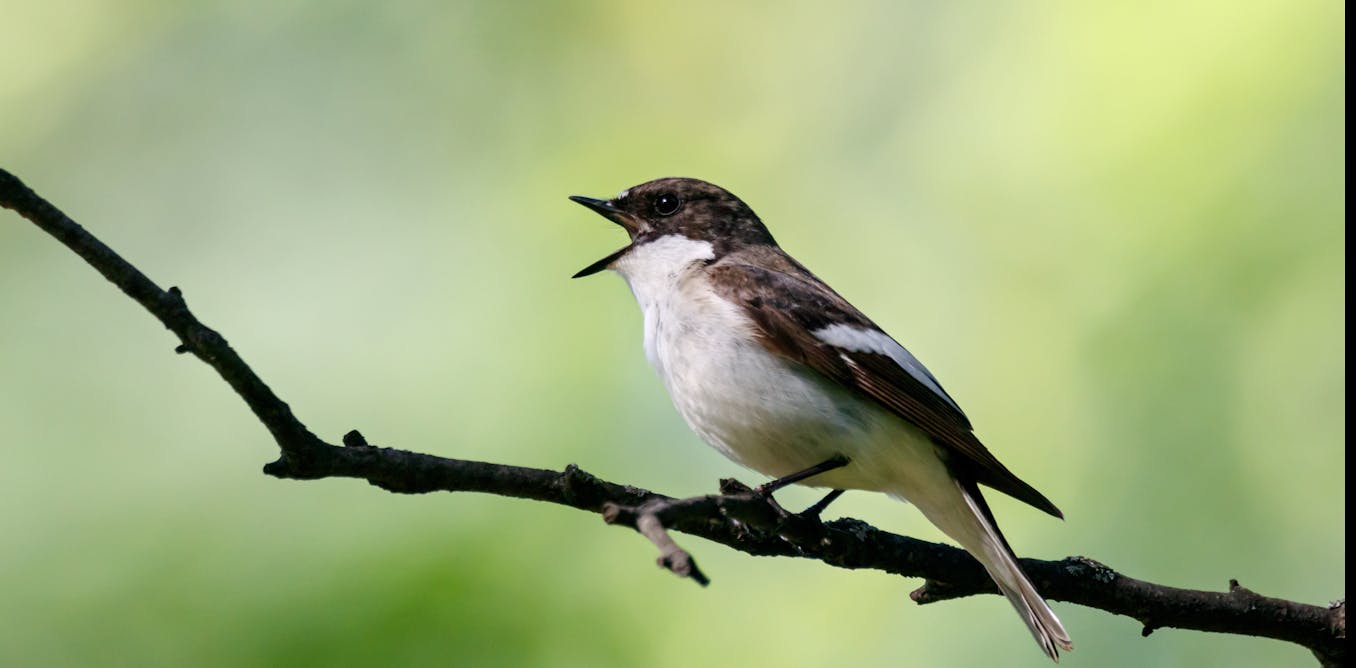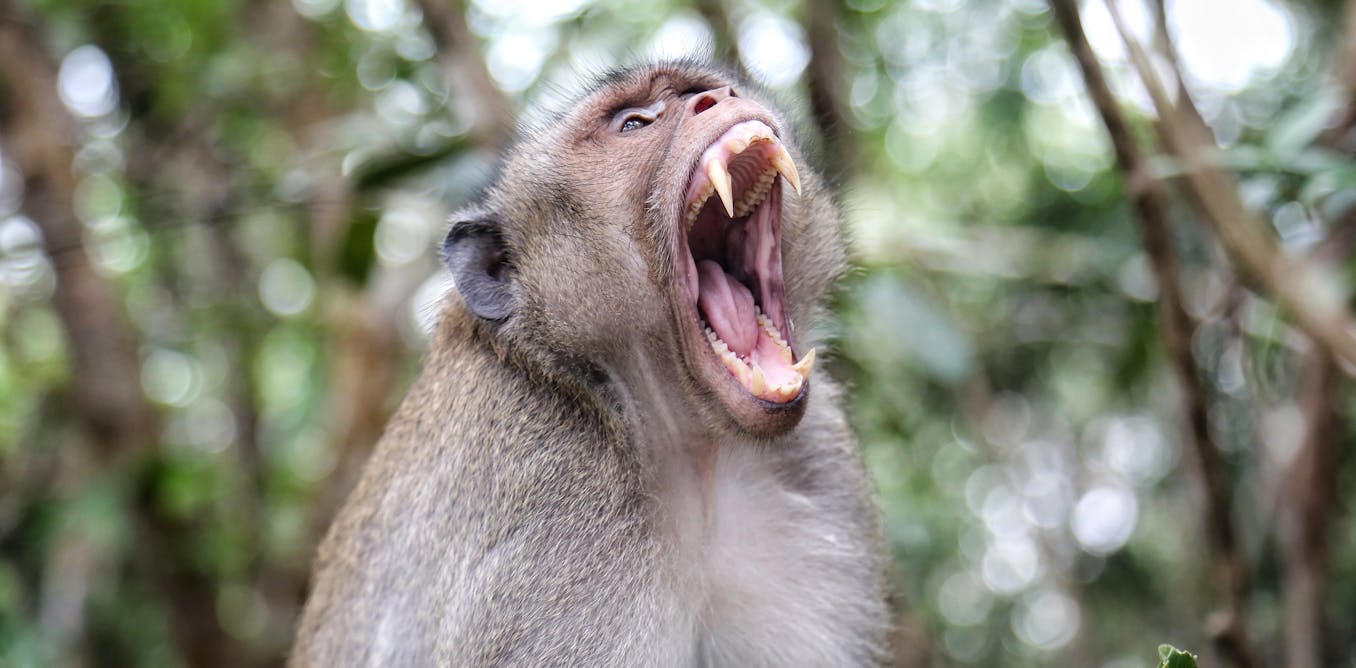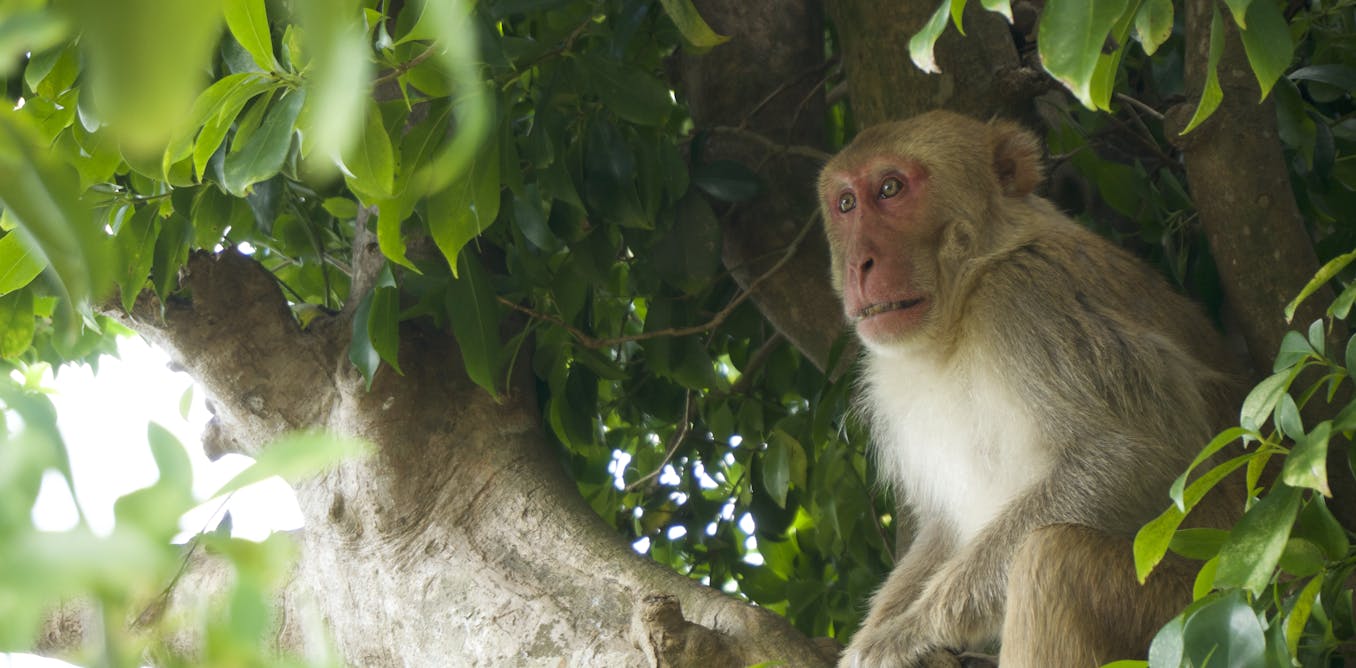
Male rhesus macaques often have sex with each other – a trait they have inherited in part from their parents
Most of the males in a Puerto Rican monkey colony engaged in homosexual activity, a new study reveals.
July 13, 2023 • 7 min • Source
Homosexual behaviour is not limited to humans. Biologists have reported homosexual behaviour in many species of wild animal, ranging from bats and birds to dolphins and primates .
When animals engage in homosexual behaviour, one might assume that they invest less time and energy on reproduction. This suggests that there may be strong reproductive costs associated with such behaviour, such as having fewer offspring. So it raises the question of how homosexual behaviour manages to evolve and continue to exist within a population.
The underlying presumption is that there is not only a cost associated with engaging in homosexual activity, but also that variation in such behaviour is passed down from one generation to the next. Called heritability, this is essential for any evolution by natural selection to occur.
We set out to investigate these issues by studying 236 male rhesus macaques living freely in a colony of 1,700 monkeys on the tropical island of Cayo Santiago, Puerto Rico. We observed these monkeys for three years and found that male same-sex sexual behaviour (SSB) was widespread. In fact, 72% of the males we observed mounted other males, while only 46% mounted females.
Critically, male SSB is not unique to this population of macaques. We saw similar behaviour in wild rhesus macaque populations in northern Thailand. And there have been previous reports of SSB in this species from India, too.
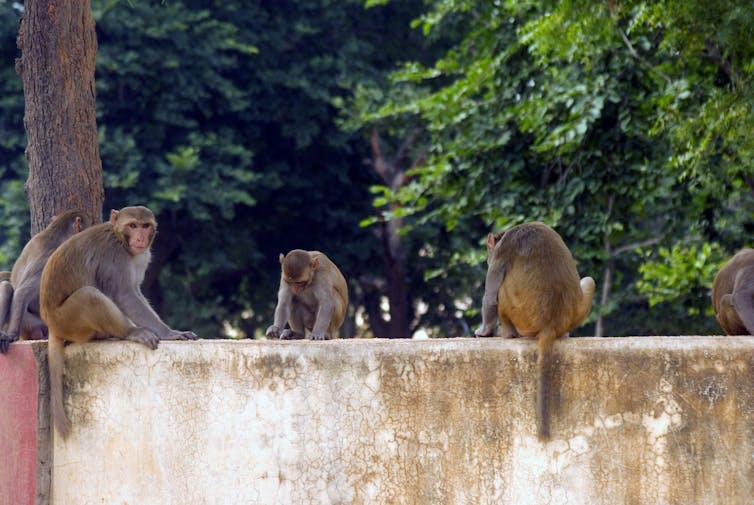
From one generation to the next
We also had access to pedigree records that traced the parentage of each macaque back to 1956. This allowed us to explore the effect of relatedness (heritability) on their behaviour, taking into account other factors that could influence the results, such as age and social group structure.
We found that the heritability of male SSB was 6.4%, meaning genetics do account for a small proportion of SSB – the rest is environmental.
We calculated “evolvability” to be 14.9%, giving the potential rate at which the trait can evolve per generation through natural selection. Evolvability is thought to be a more reliable indicator than heritability of the degree to which genetics can respond to evolutionary pressure, and provides us with further evidence that SSB can evolve through selection.
Our estimates align with what we would expect for a behavioural trait that is probably influenced by multiple genetic factors and environmental effects. They are also consistent with heritability values reported in studies of other social behaviour in primate species, including social grooming in baboons and social proximity in capuchins .
We also found a genetic correlation between the number of times a male was observed mounting another male and the number of times he was mounted by other males. This suggests that different forms of SSB in these monkeys share a common genetic basis.
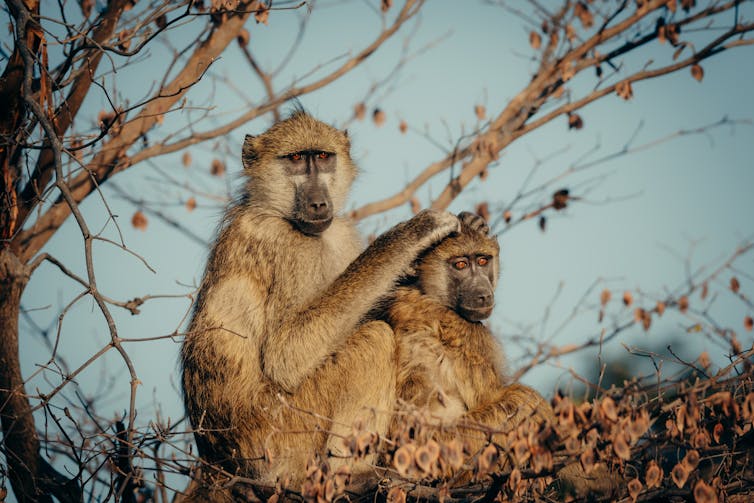
What underpins this behaviour?
Previous studies on the heritability of SSB have primarily focused on humans. However, these studies often rely on self-reported data, which can introduce complications. The cultural stigma surrounding homosexuality, for instance, could lead to the underreporting of homosexual activity.
Heritability of SSB has also been found in some invertebrate species, including seed beetles and fruit flies . However, the pathways through which SSB develops in these species are thought to be different from those observed in social vertebrates like primates. For example, factors such as imperfect sex recognition are believed to influence the development of SSB in invertebrates.
Demonstrating that SSB is heritable and its potential for evolutionary response to natural selection is an important first step towards understanding the factors that influence variation in this behaviour.
Many evolutionary theories for SSB in animals exist. But they all depend on the behaviour showing a degree of heritability.
One theory suggests that in some species, animals may engage in SSB because it serves a beneficial social function . For example, it may strengthen the bonds between males, ultimately benefiting them during competition for mates and food.
In support of this theory, our research found that male rhesus macaques involved in SSB partnerships were more likely to support each other in conflicts with other individuals. This effect could be a way in which SSB benefits a macaque and its chances of producing offspring, thereby allowing the behaviour and the genes associated with it to persist within a population.
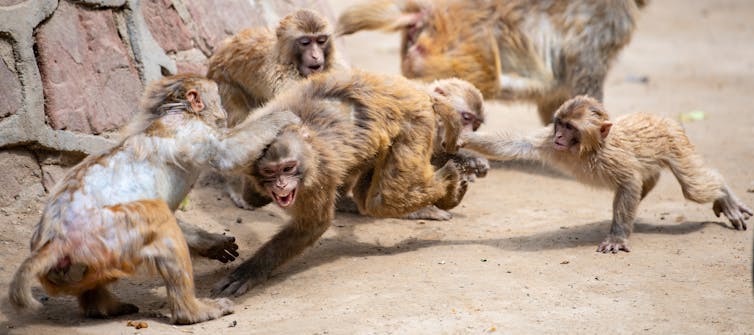
Learning from primates
So what can we learn from these findings about SSB across primate species, including humans?
A previous study examining SSB heritability in humans found significant reproductive costs associated with this behaviour. In contrast, we found no such costs in macaques.
This suggests that the costs associated with human SSB might arise from specific social factors unique to humans. However, more research is needed to explore this idea further.
Today, some people still believe that SSB is rare or the product of extreme and unusual environmental conditions, and selectively look to examples in nature to validate their view. Our results may help to challenge these beliefs and combat prejudice against homosexuality and bisexuality. However, society’s moral obligation to strive for more inclusivity and acceptance of different sexual orientations ultimately does not rely on observations from the natural world.
Jackson Clive received funding for this work from the UK Natural Environment Research Council, the American Institute of Bisexuality and the Genetics Society.
Ewan Flintham receives funding from the UK Natural Environment Research Council .
Vincent Savolainen receives funding from NERC, the American Institute of Bisexuality and the Evolution, Education Trust.

